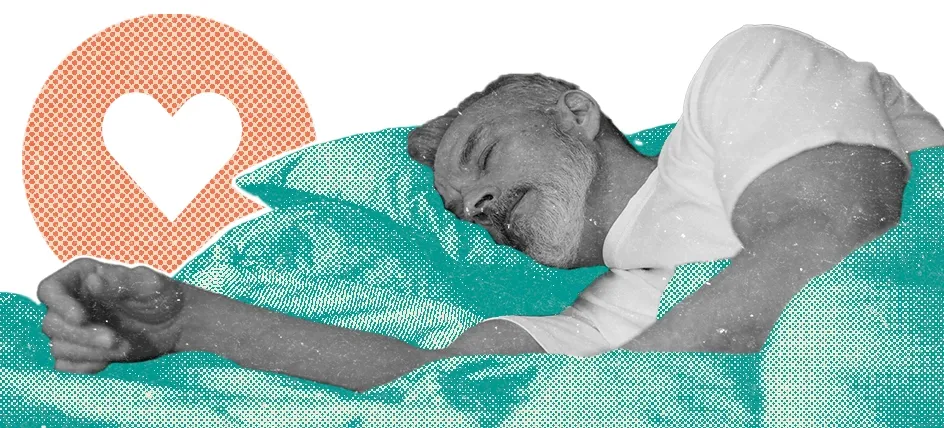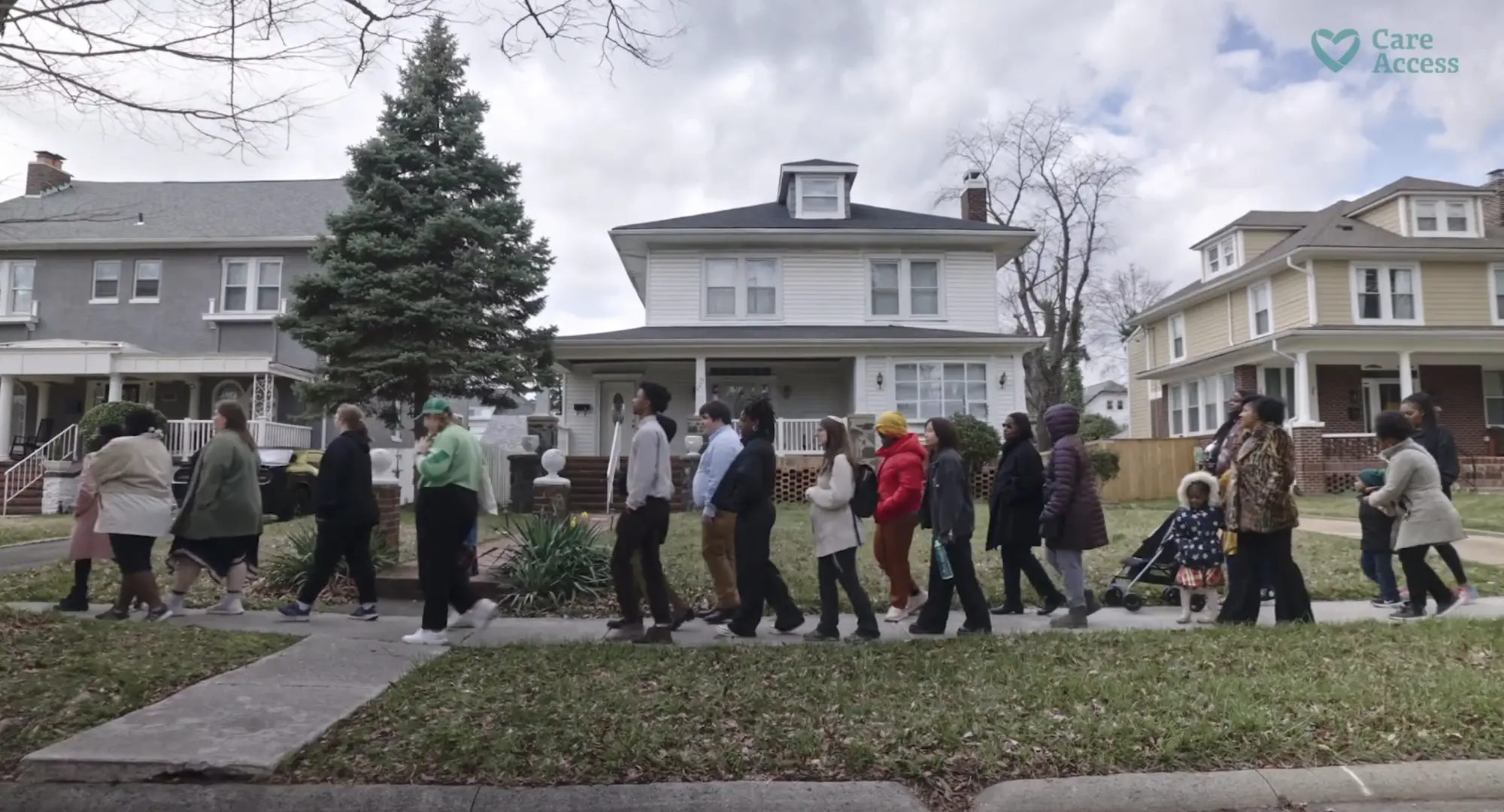Back to Health Resources
Can Sleep Impact Your Cardiovascular Health?

Getting a good night's sleep isn't just about feeling rested, research shows that sleep problems like not getting enough sleep or waking up frequently during the night can actually have a negative impact on your heart health. Let's explore heart health and learn some simple tips for better sleep.
Five Ways That Lack of Sleep Can Hurt Your Heart
- Heart Attack Risk - Sleep deprivation has been shown to increase the risk of heart attacks. A study actually revealed that people who sleep less than six hours per night face a 20% higher chance of having a heart attack.1
- High Blood Pressure - The link between inadequate sleep and high blood pressure is a key player. High blood pressure strains arteries, reducing their effectiveness in delivering blood to the heart. Poor sleep disrupts the 10-20% drop in blood pressure that happens naturally during sleep.2 It can also increase blood pressure throughout the day.3
- Chronic Inflammation - Poor sleep doesn't just impact blood pressure, it can also trigger chronic inflammation.4 This inflammation contributes to the formation of plaque and the hardening of arteries, posing further risks to heart health.
- Obesity and Hormonal Balance - Sleep plays a vital role in regulating hunger hormones. When sleep is lacking or disturbed, it can lead to overeating and an increased desire for high-calorie foods, which increases the risk of heart problems.
- Blood Sugar Management - Beyond its impact on heart health, a lack of sleep affects the body's ability to metabolize glucose, influencing blood sugar levels.5 Sleep problems are associated with prediabetes (blood sugar that is high, but not high enough to be called diabetes) and can make it more challenging for individuals with diabetes to control their blood sugar effectively.
How Much Sleep Does Your Heart Need?
According to the National Lipid Association, the right amount of sleep depends on your age. If you're between 18 and 64, aim for 7 to 9 hours each night. For those 65 and older, 7 to 8 hours is ideal. Remember, it's not just about feeling refreshed, it's about making sure your heart stays healthy.
Tips for Heart-Healthy Sleep
- Stick to a Schedule: Go to bed and wake up at the same time every day, even on weekends.
- Create a Calm Space: Make your bedroom quiet and comfy.
- Watch What You Eat: Avoid big meals or drinks before bedtime. If you're hungry, have a light, healthy snack.
- Wind Down Before Bed: Do relaxing activities, like reading or listening to calm music.
- Limit Your Bed to Sleep or Sex: Save other activities for elsewhere.
For a full list of tips, see the NLA Healthy Sleeping Habits for Your Heart
Listen to Your Heart's Signals
Finally, pay attention to your own body. Things like trouble falling asleep, loud snoring, waking up often at night, sensations in your legs, feeling too sleepy during the day, or having trouble thinking clearly, might be signs your heart needs attention. Don’t ignore these signals, tell your healthcare provider about them.
CONTRIBUTING EXPERTS

Irving Loh, MD, FACC, FACP, FAHA, FCCP
Dr. Loh is a distinguished cardiologist based in Thousand Oaks, CA. He is dedicated to preventing cardiovascular disease and enhancing patient outcomes through his clinical practice and research initiatives. Dr. Loh has held appointments at UCLA School of Medicine, Cedar-Sinai Medical Center, and Stanford Medicine.
SOURCES
- Daghlas I, Dashti HS, Lane J, Aragam KG, Rutter MK, Saxena R, Vetter C. Sleep Duration and Myocardial Infarction. J Am Coll Cardiol. 2019 Sep 10;74(10):1304-1314. doi: 10.1016/j.jacc.2019.07.022. PMID: 31488267; PMCID: PMC6785011.
- Calhoun, D. A., & Harding, S. M. (2010). Sleep and hypertension. Chest, 138(2), 434–443. https://pubmed.ncbi.nlm.nih.gov/20682533/
- Kuetting, D., Feisst, A., Sprinkart, A. M., Homsi, R., Luetkens, J., Thomas, D., Schild, H. H., & Dabir, D. (2019). Effects of a 24-hr-shift-related short-term sleep deprivation on cardiac function: A cardiac magnetic resonance-based study. Journal of sleep research, 28(3), e12665. https://onlinelibrary.wiley.com/doi/10.1111/jsr.12665
- Besedovsky, L., Lange, T., & Haack, M. (2019). The sleep-immune crosstalk in health and disease. Physiological Reviews, 99(3), 1325–1380.https://journals.physiology.org/doi/full/10.1152/physrev.00010.2018
- Spiegel, K., Tasali, E., Leproult, R., & Van Cauter, E. (2009). Effects of poor and short sleep on glucose metabolism and obesity risk. Nature reviews. Endocrinology, 5(5), 253–261. https://www.nature.com/articles/nrendo.2009.23
DISCLAIMER
The information provided on Care Access is intended for informational purposes only and should not be considered as a substitute for professional medical advice, diagnosis, or treatment. Always seek the advice of your physician or other qualified healthcare provider with any questions you may have regarding a medical condition. Our products and content are not intended to diagnose, treat, cure, or prevent any disease.
Explore More Health Resources

STORIES from the Heart

